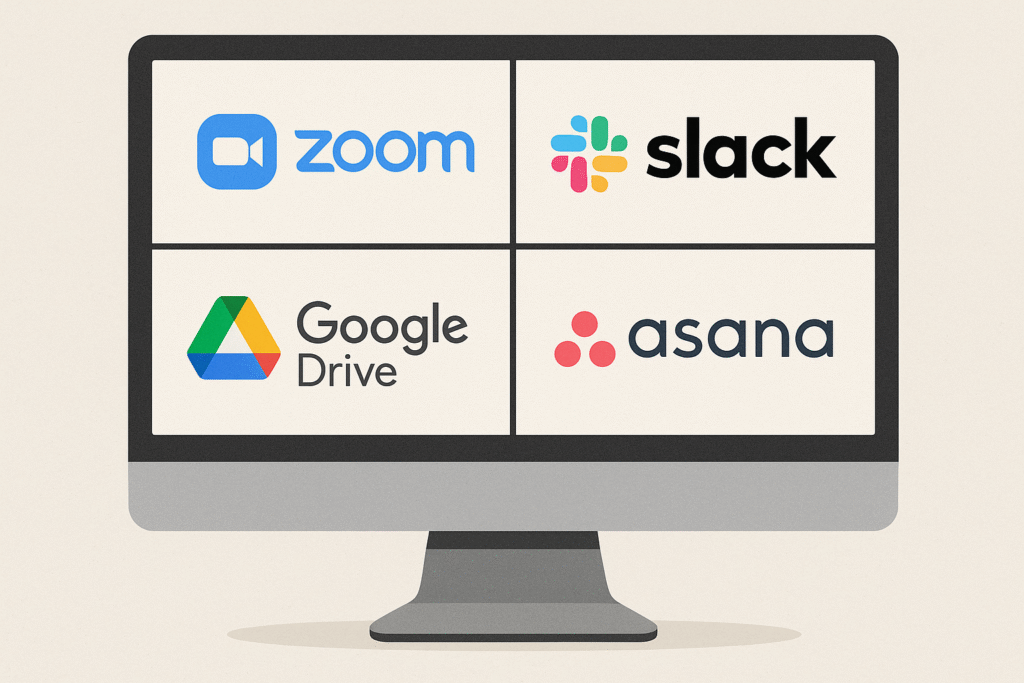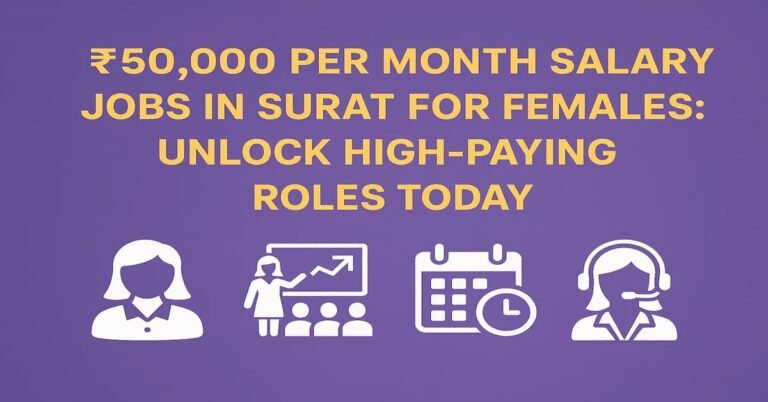The idea of work has changed dramatically in the last few years. Gone are the days when employees had to travel long hours in traffic, work strictly from an office desk, and rely on traditional 9-to-5 schedules. Today, more and more professionals in India are shifting to remote jobs—an arrangement where you can work from home, cafés, co-working spaces, or even while traveling.
But many students, fresh graduates, and even working professionals still ask:
👉 What are remote jobs?
👉 How do they work in India?
👉 Can you build a full-time career without going to an office?
This blog will give you a complete guide to remote jobs, especially for the Indian workforce, so you can understand how they work and whether they are the right choice for your career in 2025 and beyond.

1. What Are Remote Jobs?

A remote job is a role where employees are not required to physically attend a traditional office. Instead, they work from a location of their choice using laptops, smartphones, and the internet.
Remote jobs can be:
- Fully Remote: Employees work 100% from home or anywhere outside the office.
- Hybrid Remote: A mix of office work and remote work (e.g., 3 days office + 2 days home).
- Freelance/Contract Remote Work: Professionals take projects from companies/clients and work independently.
📌 In India, remote jobs became mainstream during the COVID-19 pandemic and have since continued due to improved digital infrastructure, cheaper internet, and the rise of global opportunities.
2. How Do Remote Jobs Work?
Remote jobs are possible because of technology and changing workplace culture. Let’s break it down:

a) Tools & Technology
Remote workers rely on digital platforms for communication, file sharing, and task management. Popular tools include:
- Video Calls & Meetings: Zoom, Google Meet, Microsoft Teams
- Team Collaboration: Slack, Trello, Asana, Notion
- File Sharing: Google Drive, Dropbox, OneDrive
- Project Tracking: Jira, Monday.com
These tools ensure teams stay connected, even if members are in different cities or countries.
b) Work Hours & Flexibility
- Some remote jobs follow fixed office timings (e.g., 9 AM – 6 PM, but from home).
- Others allow flexible working hours, where only task completion and deadlines matter.
- Freelancers often choose their own schedules depending on client agreements.
c) Payment & Contracts
- Full-time employees receive salaries directly into their accounts, just like office jobs.
- Freelancers/contract workers get paid per project or hourly basis, often via PayPal, Wise, or Indian UPI/bank transfers.
d) Management & Accountability
- Remote workers are usually evaluated on deliverables and results, not time spent at a desk.
- Many companies use time-tracking software (like Hubstaff, Clockify) to monitor productivity.
3. Types of Remote Jobs in India (2025)
Remote opportunities are growing across industries. Some of the most popular remote roles include:
- IT & Tech: Software Developer, Cloud Engineer, Data Scientist
- Marketing & Sales: Digital Marketing Executive, SEO Specialist, Social Media Manager
- Creative Fields: Content Writer, Graphic Designer, Video Editor
- Support Roles: Virtual Assistant, HR Recruiter, Customer Support
- Finance & Business: Accountant, Financial Analyst, Business Consultant
- Teaching & Learning: Online Tutor, Course Creator, EdTech Trainer
📌 Even government-backed platforms like SWAYAM and private edtech companies like Byju’s and Vedantu now hire remote tutors in India.

4. Benefits of Remote Jobs in India
Remote work offers unique advantages, especially in a country like India where commuting, cost of living, and work-life balance are major issues.

✅ Saves Travel Time & Money – No daily travel in traffic jams, metro queues, or fuel expenses.
✅ Work-Life Balance – More time with family, flexible schedules, and reduced stress.
✅ More Global Opportunities – Indians can work for U.S., U.K., and European companies without leaving the country.
✅ Cost Savings for Employers – Companies save on office rent and infrastructure, making them open to hiring remote staff.
✅ Accessibility – Students, mothers, or people in Tier-2 and Tier-3 cities can now access jobs without relocating to metro cities.
5. Challenges of Remote Jobs

While remote jobs are exciting, they also come with challenges that workers need to manage carefully.
⚠️ Isolation & Loneliness – Lack of face-to-face interaction with colleagues.
⚠️ Work-Life Blur – Some employees struggle to separate personal and professional time.
⚠️ Distractions at Home – Household responsibilities can interfere with work focus.
⚠️ Technology Issues – Poor internet connections in rural areas can be a barrier.
⚠️ Lack of Career Growth Visibility – Remote workers sometimes miss out on promotions compared to in-office peers.
6. How Indians Can Find Remote Jobs (2025)
If you’re looking to start a remote career in India, here are the best platforms to find opportunities:
In 2025, remote jobs in India have become a mainstream career choice, offering professionals the flexibility to work from home or any location of their choice. These roles span various industries, including IT, marketing, and customer support, and often come with competitive salaries. Platforms like LinkedIn, Naukri.com, and Upwork have listings for remote positions, catering to both experienced professionals and freshers. Whether you’re seeking full-time employment or freelance opportunities, the rise of remote work in India provides diverse options to suit different career aspirations.

- LinkedIn Jobs – Search with filters like “Remote” or “Work from Home.”
- Naukri.com – India’s largest job portal now has remote job filters.
- Indeed India – Regularly lists remote and hybrid opportunities.
- Internshala – Ideal for students looking for part-time or internship remote roles.
- International Platforms: Upwork, Fiverr, Toptal, Remote.co, FlexJobs (for global freelancing opportunities).
7. Future of Remote Jobs in India (2025–2030)
According to NASSCOM and Gartner reports, remote and hybrid models will dominate the Indian job market in the coming years. Some trends include:
- Global Hiring: More Indian professionals working for foreign companies from home.
- Rise of Freelancers: India already has over 15 million freelancers, one of the largest freelancer workforces in the world.
- Tier-2 & Tier-3 Boom: Remote jobs will reduce migration to big cities like Bangalore, Mumbai, and Delhi.
- AI and Automation: Many remote tools will be AI-powered, making productivity tracking smoother.
📌 By 2030, experts predict 40–50% of white-collar jobs in India could be remote or hybrid.
8. Who Should Consider Remote Jobs?
Remote jobs are ideal for:
- Students wanting part-time income.
- Freshers who want global exposure.
- Mothers or homemakers balancing family and career.
- Professionals in smaller cities seeking big-city salaries.
- Anyone who values flexibility over strict office culture.
Conclusion
Remote jobs are no longer just a trend—they are the future of work in India. With rising digital adoption, global companies outsourcing to Indian talent, and the cultural acceptance of work-from-home setups, the opportunities are endless.
If you are wondering “What are remote jobs and how do they work?”, remember this:
- They work through technology, trust, and flexibility.
- They are here to stay, especially for skilled Indian professionals.
- And most importantly, they give you the power to control your career and lifestyle.
So whether you’re a college student, a fresher, or an experienced professional—remote jobs in 2025–26 can be your gateway to financial independence and a better work-life balance.


